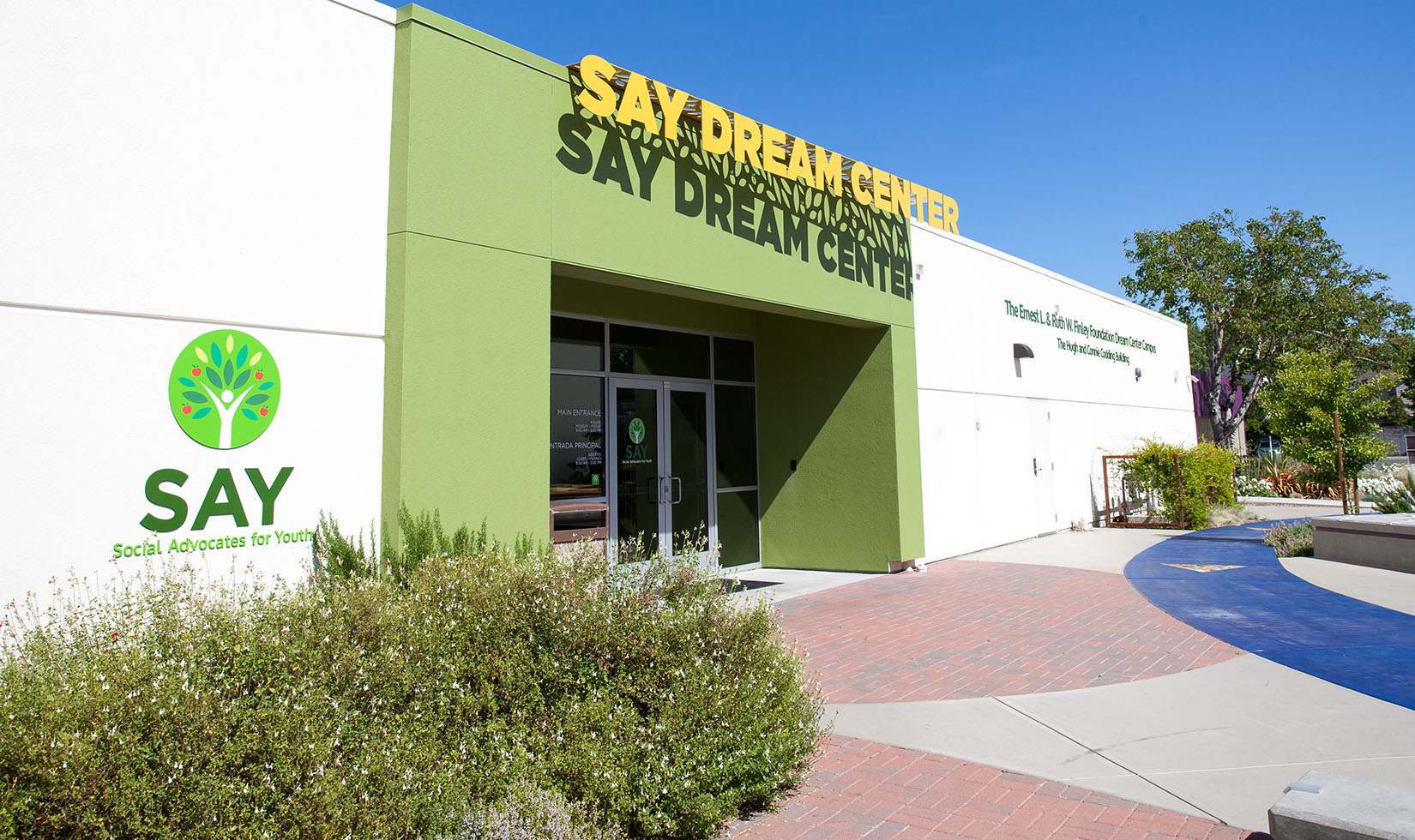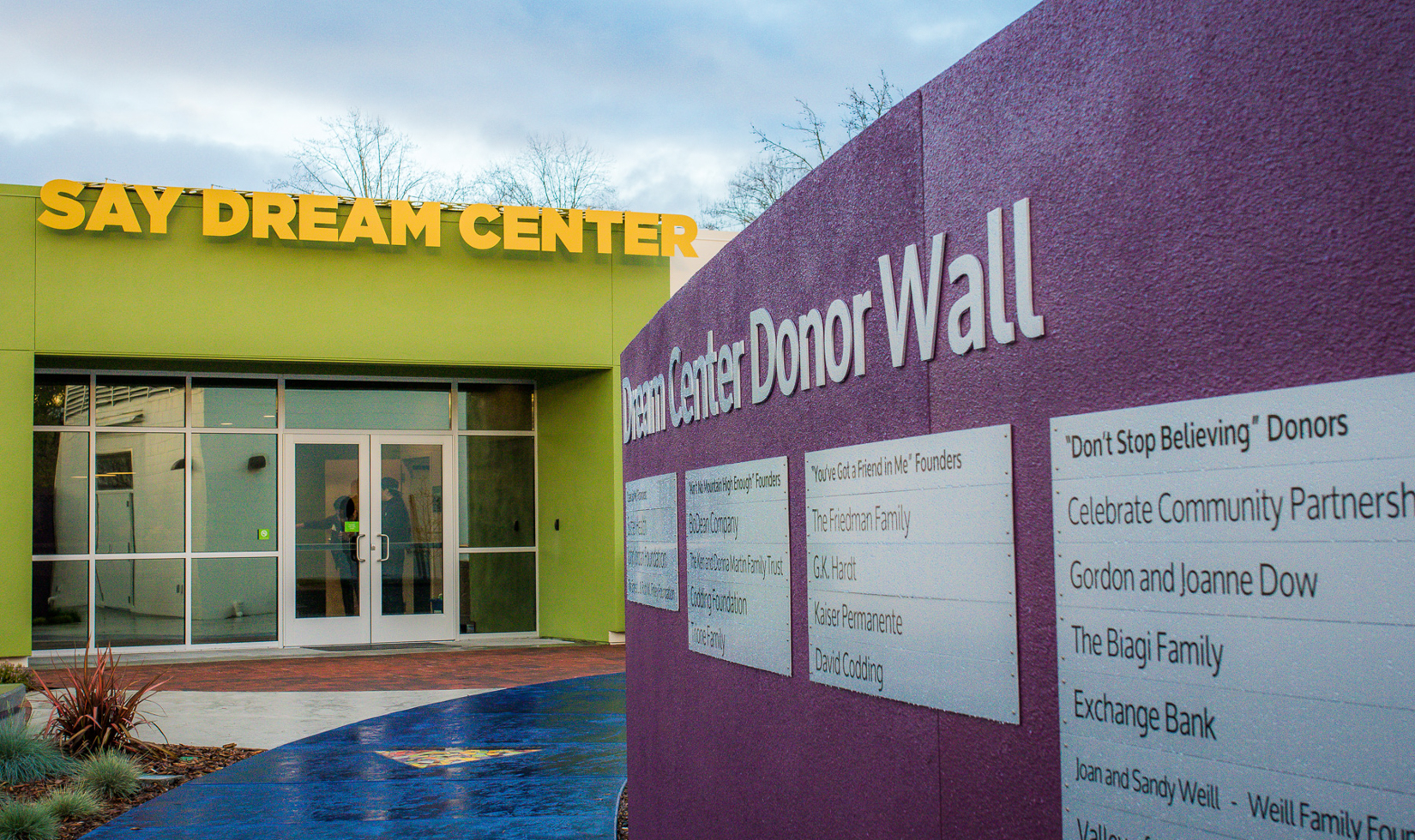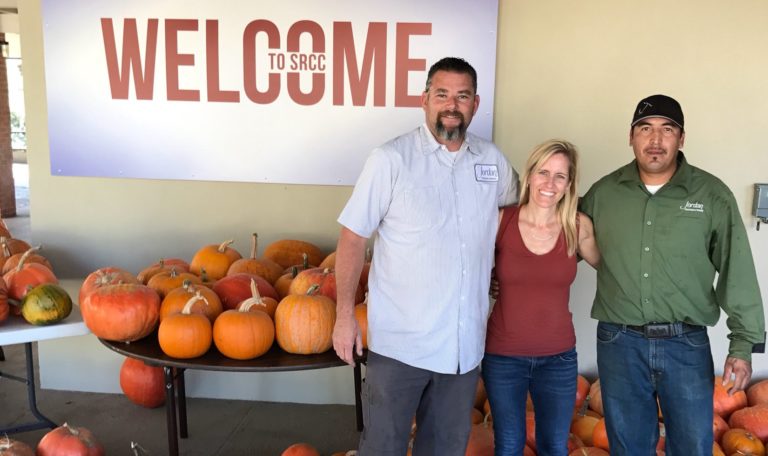The SAY Finley Dream Center combines housing, counseling and career services for at-risk youth under one roof in Wine Country. Here’s how the ambitious project became a reality with support from the John Jordan Foundation.

The Creation of the SAY Finley Dream Center
A street corner in Nashville. That’s where the idea for the Dream Center took flight. It was a brisk afternoon in 2013, and Lisa Wittke Schaffner, then executive director of the John Jordan Foundation (JJF), stood shoulder to shoulder with her colleague, Matt Martin of Social Advocates for Youth (SAY), staring up at a blocklong, two-story brick building. A group of Sonoma County education advocates had traveled 2,300 miles to learn about several innovative programs in the city, including the Oasis Center—a once-abandoned commercial building that had been transformed into a community center supporting more than 4,000 at-risk teens and their families with crisis, housing and career support.
“We can do something this big in Sonoma County,” Martin said to the group. “I know just the spot.”
At the time, he served as chief executive officer for SAY, a non-profit founded in 1971 as an alternative to juvenile hall. SAY has been providing housing to youth since the 1990s, and its Tamayo Village, opened in 2005, was their first dedicated building for affordable, long-term housing with 25 beds. But the building isn’t large enough to bring other essential services to struggling youth, from counseling to career support.
Martin had been eyeing a vacant hospital in southeast Santa Rosa, owned by Sutter Health. “There are homeless kids on the street, and this building is empty. We know how to find these kids,” Martin told his colleague, who has been running the John Jordan Foundation since its founding in 2012. “I have convinced Sutter to donate the hospital to us. But I need your help to build our dream.”
Wittke Schaffner was impressed and intrigued. “This is exactly the kind of innovative project we look to invest in. A center of this kind that helps young people with so many aspects of their lives is the way to truly help them.”
“It was the perfect wraparound plan,” Jordan said, recalling the proposal. “We both saw the vision right away and wanted to be involved in something this groundbreaking.”
JJF made a commitment to invest $1 million over five years, from 2015 to 2020, half to help build the SAY Finley Dream Center and half to sustain the career programs. (The Finley Foundation was the largest contributor to the creation of the center, hence the name.) SAY took ownership of the Sutter Warrack hospital in 2015 and spent one year renovating and retrofitting the 52,000-square-foot campus to become a center where housing and other support services could be combined on one site in multiple buildings, dramatically increasing social impact.
But SAY wanted to dream even bigger.

The John Jordan Foundation Career Hub
The organization constantly refines its formula for breaking the cycle of abuse and hopelessness among youth and their families, focusing on four pillars: housing, counseling, crisis and careers. The career piece was something that Martin felt strongly about expanding beyond mentorships and job fairs. Martin knew to truly change the lives of struggling young people, they would need basic skills to get a job and the advanced skills necessary to maintain and grow into fulfilling careers. Research shows that youth experiencing periods of disconnection are more likely to engage in risky behaviors, are at-risk of victimization by adults, earn less income, and face higher rates of incarceration and unemployment.
Co-locating career services along with housing and counseling at the Dream Center would allow SAY to provide youth with more integrated services to stabilize their lives, avoid disconnection and grow successfully into adulthood.
Ideas started to flow. SAY and JJF came up with a plan to create a dedicated center within the Dream Center, providing teens and young adults with one-on-one coaching for resume writing, mock interviews, job search, computer access and other services. In 2016, the John Jordan Foundation Career Hub opened its doors. The John Jordan Foundation provides ongoing financial support for career hub operations.
Martin left SAY in 2017, but his legacy endures. Social Advocates for Youth serves 3,500 youth per year, up to age 25, between the Dream Center, its school mental health clinicians and Street Outreach team. Anita Maldonado, the current chief executive officer at SAY, has continued to build upon the foundation of this groundbreaking center.
In 2020, SAY opened its Family Cottage, a home for pregnant and parenting youth, and in the spring, when schools first started to close due to the pandemic, SAY pivoted to telehealth in order to continue providing mental health services to youth.
“The John Jordan Foundation is an invaluable partner in SAY’s work for Sonoma County,” Maldonado said. “Not only does the John Jordan Foundation Career Hub serve youth looking to become self-sufficient, Jordan’s contribution to our operations helps us have the greatest possible impact on all of the vulnerable youth we serve.”
A large portion of the proceeds from Jordan wine sales fund the John Jordan Foundation, which works to fight the negative effects of poverty in communities.





